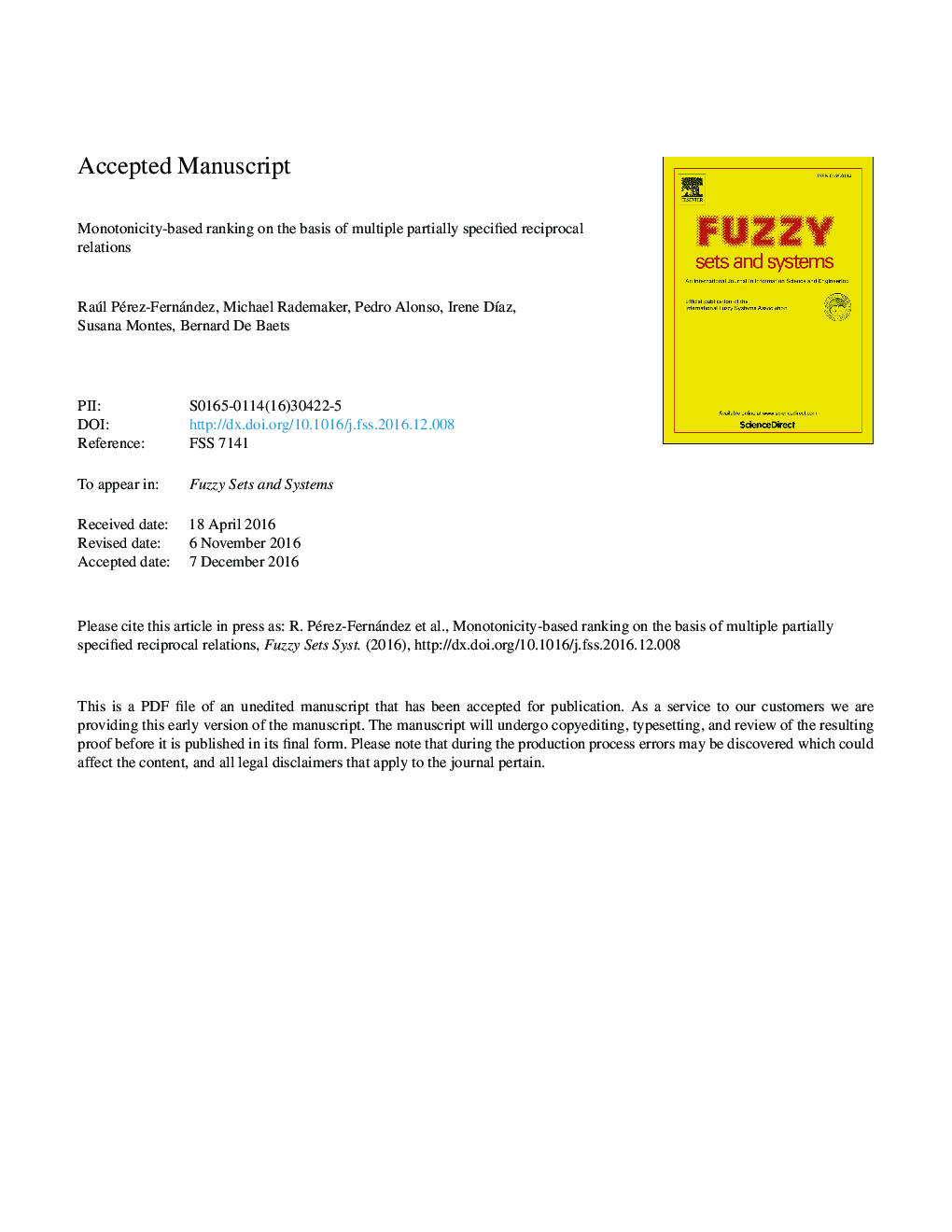| Article ID | Journal | Published Year | Pages | File Type |
|---|---|---|---|---|
| 4943776 | Fuzzy Sets and Systems | 2017 | 41 Pages |
Abstract
The aggregation of rankings is a recurrent task in several fields of application. In a recent work by Rademaker and De Baets, a ranking rule based on a natural monotonicity property was proposed in the context of social choice theory. This rule is built on the premise that, for a ranking aâ»bâ»c to represent a group's opinion, it would be natural that the strength with which aâ»c is supported should not be less than both the strength with which aâ»b and the strength with which bâ»c are supported. A first approach to this ranking rule considering totally specified monotone reciprocal relations on a bipolar qualitative scale has already been taken. In this paper, a more general setting is considered: each voter is allowed to provide a partially specified reciprocal relation (that may not be monotone) on the unit interval. Additionally, new ways of measuring the cost of imposing monotonicity are introduced.
Related Topics
Physical Sciences and Engineering
Computer Science
Artificial Intelligence
Authors
Raúl Pérez-Fernández, Michael Rademaker, Pedro Alonso, Irene DÃaz, Susana Montes, Bernard De Baets,
